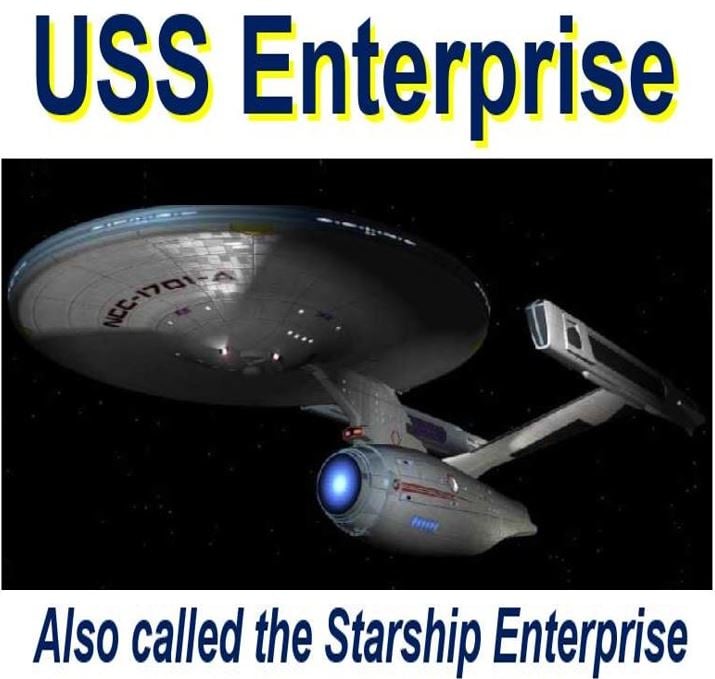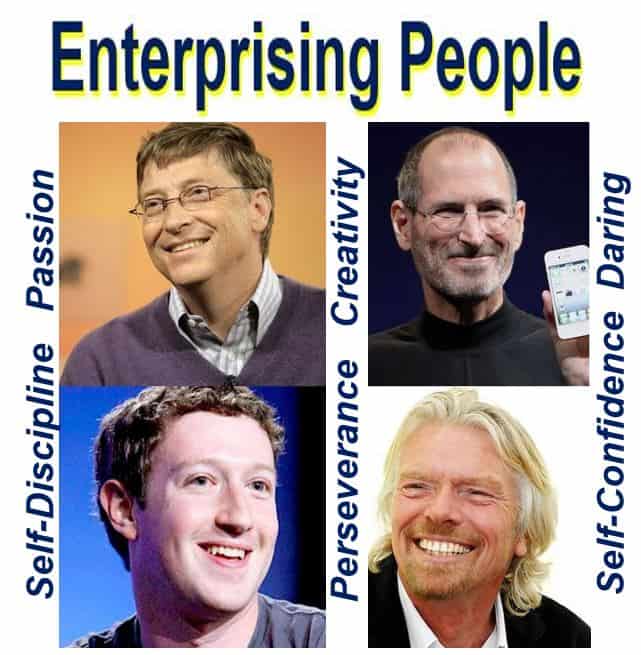The term Enterprise has several meanings. 1. A human skill: eagerness to do something new and clever, despite any risks. 2. A business, as in “This is a business enterprise; our aim is to make a profit.” 3. A difficult or important challenge, as in “Her latest enterprise is to swim the English Channel.
The term first appeared in the English language in the early fifteenth century with the meaning ‘an undertaking’. It originated from Old French (12th century) enterprise ‘an undertaking’ and entreprendre ‘undertake, take in hand’.
Over the centuries, the concept of enterprise has expanded, reflecting the spirit of innovation and the evolving complexities of economic and social ventures.
It was not until the 15th century that it had the abstract sense of ‘readiness to undertake challenges, spirit of daring, adventurous disposition’.

When enterprise refers to a human skill
A person with this skill is enterprising – he or she is an entrepreneur. He or she is willing to:
Take Risks: anybody who has done it will tell you that setting up a new business is fraught with risks. No matter how carefully one researches the market, there is always the possibility that customers may not like the product, or some other problem emerges and and the business does not make a profit.
Make Things Happen: a true entrepreneur has the energy, determination and drive to overcome the hurdles and possible pitfalls associated with launching a new business.
Try New Things: an enterprising person has the imagination and astuteness to identify business opportunities that will satisfy consumer needs and fill gaps in the market.

Creative thinking is a feature every enterprising person has. They come up with new ideas or approaches to business. A new idea might include a new product, such as Steve Jobs’ creation of the mouse, which revolutionized the way we use computers. Creative thinking and fresh ideas give companies a competitive advantage and help make their products or services stand out.
In the rapidly changing digital landscape, an enterprising individual continuously adapts to technological advancements to maintain a competitive edge
A type of business
A commercial enterprise is a business – a company or firm. However, we cannot use the term interchangeably with a business or company. For example, we cannot say “The enterprise where he works employs 10 people.”
However, a company that belongs to the state can be called ‘A state-owned enterprise’.
It is unusual to use the term without preceding it with a word that describes what it does or how big/small it is, such as a ‘commercial enterprise’ or ‘SME’ (small and medium enterprises).
What is enterprise software?
Enterprise software, also known as EAS (enterprise application software), is computer software aimed at businesses or organizations rather than individuals.
Enterprise application software is used by schools, companies, interest-based user groups, charities, clubs or governments. EAS is an integral part of a computer-based information system.
EAS is used for a wide range of computer-based and Internet activities, such as online payment processing, online shopping, automated billing systems, IT service management, customer relationship management, business intelligence, human resource management, etc.
The British software development expert, Martin Fowler, says in his book – Patterns of Enterprise Application Architecture:
“Enterprise applications are about the display, manipulation, and storage of large amounts of often complex data and the support or automation of business processes with that data.”
